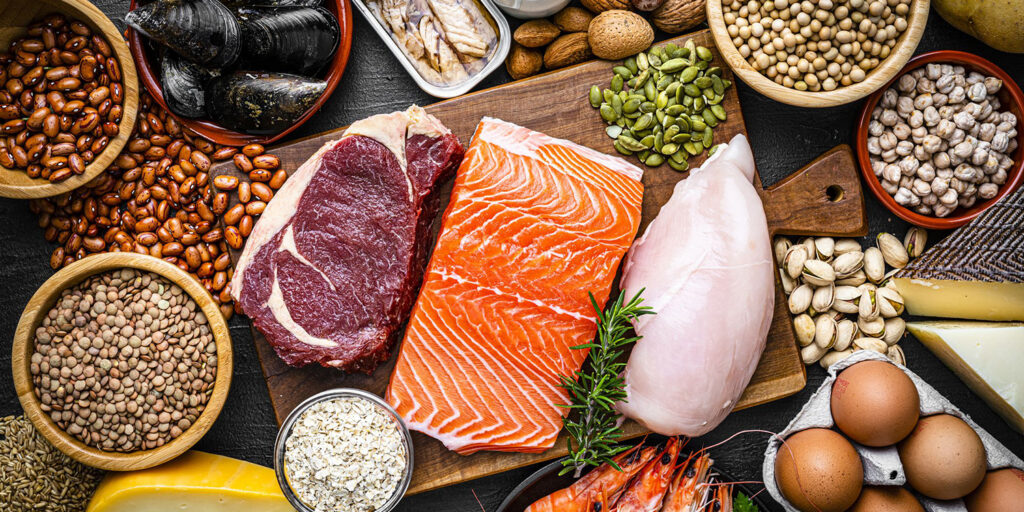
The synthesis of muscle protein is heavily influenced by three key factors: the quantity of protein consumed, the type of protein ingested, and the timing of its consumption in relation to exercise. Recent studies have shed light on the nuances of these factors and their impact on maximizing protein synthesis.
1. Amount of Protein: Research suggests that the amount of protein consumed is a critical determinant of protein synthesis. Studies indicate that consuming approximately 10 grams of essential amino acids or 25 grams of complete protein post-exercise maximally stimulates protein synthesis. Additionally, higher protein intake, up to a certain limit, correlates with increased protein synthesis. However, excessive protein consumption beyond the body’s utilization capacity might not further enhance synthesis and can lead to potential health concerns.
2. Type of Protein: Different types of protein, such as whey and soy, have varying effects on muscle protein synthesis. Whey protein, in particular, has demonstrated an ability to elevate plasma and intracellular levels of leucine, an amino acid linked to increased protein synthesis. Studies have shown that milk proteins, including whey, might be more effective in promoting synthesis compared to soy proteins. Additionally, whey protein appears to promote cellular signaling changes that aid in protein synthesis and may have advantages in terms of energy storage in muscle.
3. Timing of Protein Consumption: Timing plays a crucial role in maximizing protein synthesis. Immediate post-exercise protein consumption has been found to significantly stimulate synthesis, while delaying intake by as little as two hours after exercise can blunt this response. Consuming protein before and after exercise seems to be an effective strategy for maximizing muscle protein synthesis.
Understanding and optimizing these factors—amount, type, and timing of protein intake—can significantly impact the body’s adaptive response to exercise, particularly in terms of muscle protein synthesis. By tailoring protein consumption based on these insights, individuals can potentially enhance their body’s ability to build and maintain muscle mass.
References:
Weinert, D. J. (2009). Nutrition and muscle protein synthesis: a descriptive review. *Journal of the Canadian Chiropractic Association, 53*(3), 186–193. doi: 10.1016/j.joca.2009.06.002
Miller, B. F. (2007). Human muscle protein synthesis after physical activity and feeding. *Exercise and Sport Sciences Reviews, 35*(2), 50-55. doi: 10.1097/jes.0b013e31803e9186
Related Articles:
The Power of Protein for Optimal Muscle Growth: Fueling Your Body’s Transformation
Learn how to calculate your precise protein requirements and select the best protein sources for your workouts. [Read more…]
Caloric Surplus Unleashed: Fueling Your Muscle Gain Journey
Learn to navigate caloric intake, macros, and portion sizes to unlock your body’s true muscle-building potential. [Reads more…]



